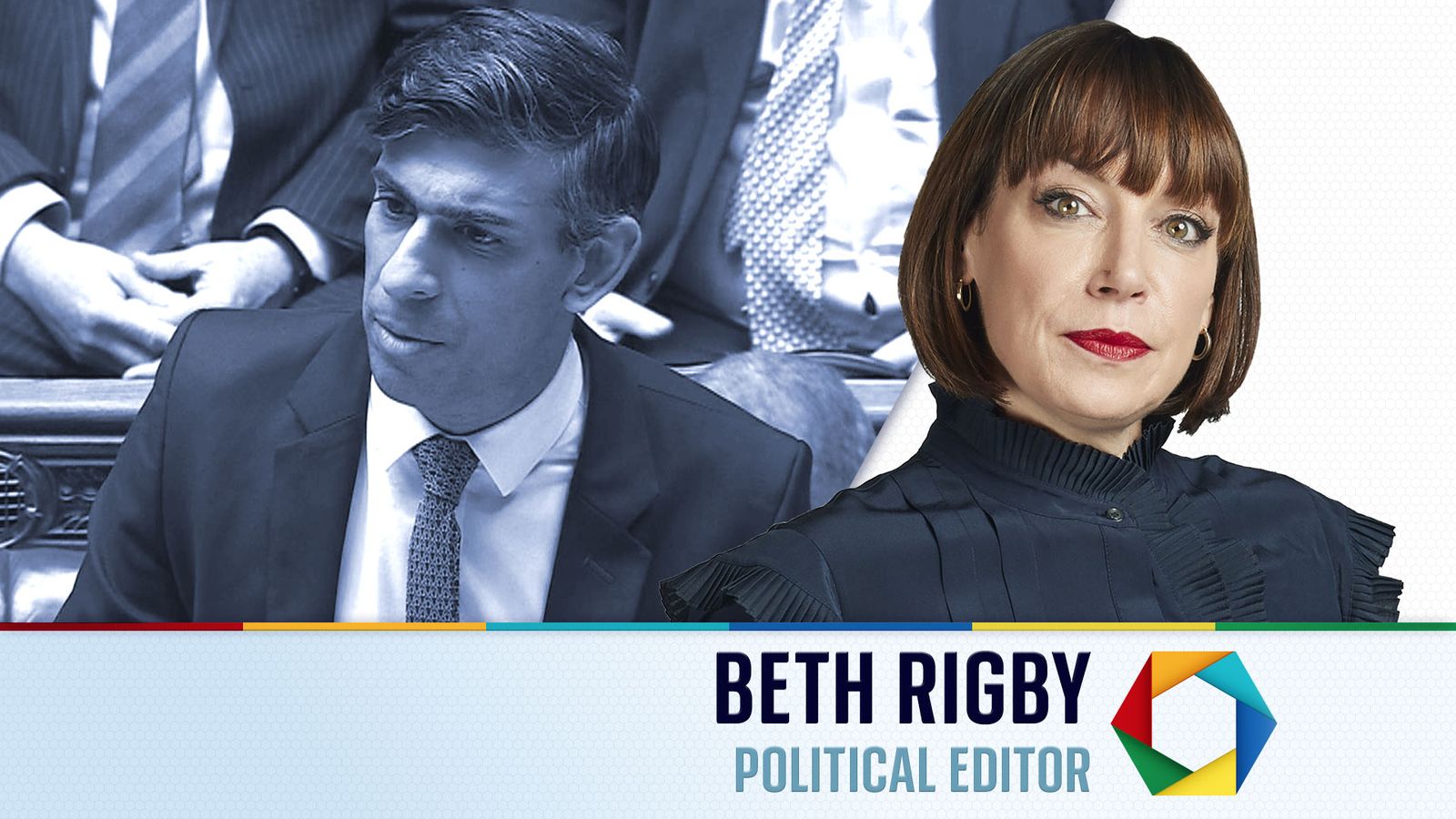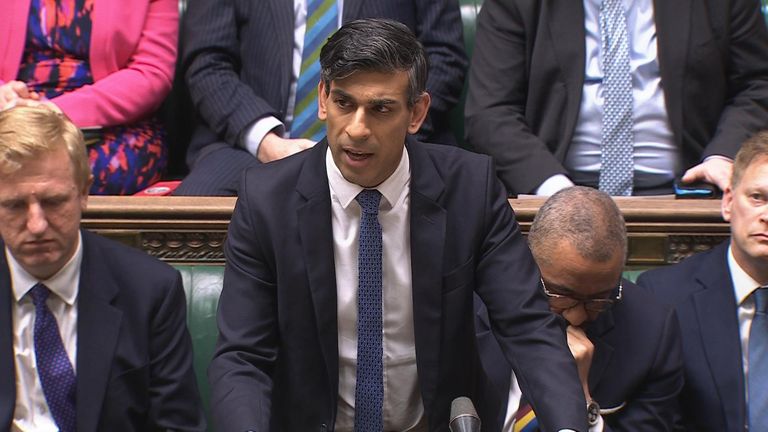From Rishi Sunak to Keir Starmer, to President Macron and President Biden, Western leaders on Monday appealed to Israel to exercise restraint following Iran’s drone and missile attack.
The prime minister, addressing MPs, issued a carefully-worded statement that both reiterated unwavering support for Israel while acknowledging the other regional partners – Jordan and Saudi Arabia – who helped in efforts to intercept and destroy almost all the projectiles fired by Iran and its proxies on Saturday.
With all eyes on Israel, allies are publicly co-ordinated and the prime minister on Monday was careful not to go beyond clearly agreed lines to take among allies.
He was determined not to throw a match into the tinderbox as Western powers instead embark upon frantic shuttle diplomacy behind the scenes, with the PM due to speak to Netanyahu, and the Foreign Secretary Lord David Cameron potentially taking a trip to the region.
Politics latest: Sunak and Starmer call for ‘restraint’
Because this is a dangerous moment: As the prime minister’s spokesperson said this morning, had the Iranian attack been successful, it’s hard to overestimate the fallout for regional instability.
Having seen off that threat, the aim now is to make sure Israel’s response does not undo their efforts.
Expressing support for Israel, the PM also said allies must “invest more deeply” in the two-state solution and said the conflict in Gaza “must end” and reiterated the need for new crossings to be opened for longer to let more aid in.
Backbenchers frustrated
Announcing he would shortly be speaking to Prime Minister Netanyahu, Mr Sunak was clear that in expressing solidarity with Israel, he also stressed “all sides must show restraint”.
But if the PM has his eyes trained on the Middle East, senior backbenchers seemed frustrated on Monday that the UK wasn’t taking a more robust line with Iran.
Suella Braverman, the former home secretary, and Iain Duncan Smith asked the prime minister why the government hadn’t proscribed the Islamic Revolutionary Guard Corps (IRGC) as a terrorist organisation.
Searching questions over tougher sanctions
Meanwhile, former defence secretary Liam Fox asked about tougher sanctions, asking why Iranian banks were still operating in the City or Iran Air at Heathrow – and what could be done to stop the export of Iranian oil to Russia and other countries.
On this, the prime minister said “active work” was being undertaken and discussions were being held between allies to co-ordinate efforts and move in a manner that has “maximum impact both on the regime and on the ultimate designations of any future sanctions”.
It might well be that further down the line, the prime minister does respond more directly with his backbenchers. But for now, their demands are neither his focus nor his concern.

